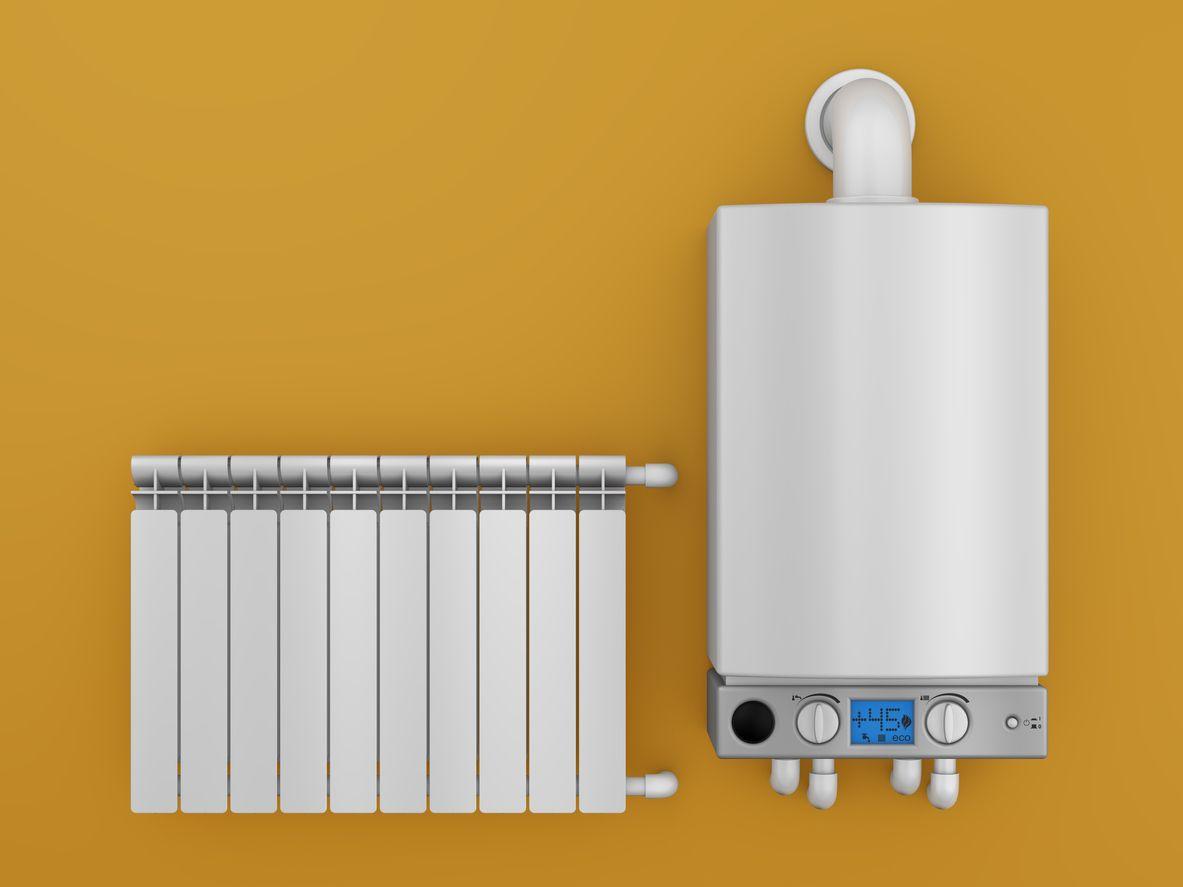How Long Does a Boiler Last? Factors Influencing Boiler Lifespan

While some consider them outdated, boilers are still a common heating option for American homeowners especially in the Northeast. Known for their longevity, energy efficiency, and consistent heating distribution, an estimated 9 million homes use boilers for heating during the cold weather months.
However, like any HVAC system, boilers have a finite lifespan and must be replaced eventually. But how long does a boiler last exactly? Keep reading as HVAC.com answers that question and discusses the factors that influence a boiler’s lifespan.
How Does a Boiler Work?
Boilers operate quite differently from traditional heating systems such as gas furnaces. While furnaces provide warmth by directly heating air and distributing it through homes via ductwork, boilers heat water to keep homes warm and comfortable throughout the winter. After the boiler heats the water, hot water or steam is circulated through pipes and radiators or underfloor heating systems and into your home’s living areas.
How Long Should a Boiler Last?
Residential gas boilers typically last about 15-20 years, although it’s not uncommon for a boiler to still operate efficiently after 30 years.
Factors that Affect the Lifespan of a Residential Boiler
Several notable factors influence the longevity of a residential boiler system, most notably:
Maintenance
Just like all types of HVAC systems, boilers require regular maintenance to keep them running properly and efficiently. During a boiler tune-up appointment, a qualified technician thoroughly inspects the entire system, checking for leaks, testing safety controls, and cleaning internal components to ensure peak performance and efficient operation.
Installation
Hiring a reputable HVAC contractor plays a crucial role in a boiler’s lifespan. A savvy technician will identify a boiler that meets the specific requirements of your home and professionally install it for you, ensuring proper and efficient operation which can extend the lifespan of the unit. Shoddy installation work, meanwhile, can cause issues such as increased wear and tear on crucial components and uneven heating, which can reduce the boiler’s overall lifespan.
Climate and Usage
The region in which you live can also play a large role in how long your boiler lasts. Homeowners in areas of the country that frequently see temperatures dip below freezing during the winter, including the Northeast and Midwest, rely on their boilers more frequently. Heavy usage because of extreme weather conditions can cause increased stress on the boiler, which can negatively affect its lifespan.
Water Quality
The quality of water plays a critical role in how your boiler operates and its overall lifespan. A hard water supply contains minerals such as calcium and magnesium. Over time, a buildup of sediment and scale within the boiler can deteriorate internal components, leading to decreased efficiency and the need for repair, shortening the lifespan of the system’s components and the boiler as a whole. A water softener can aid a boiler by reducing mineral content in the water, preventing scale buildup, and enhancing the overall efficiency and longevity of the heating system.
Make and Model
There is a wide range of residential boilers on the market. Choosing a reputable brand that puts a premium on reliability, durability, and quality materials can help reduce repairs and extend the lifespan of the boiler system.
Common Signs You Need to Replace Your Boiler System
- Age: Boilers typically have a lifespan of about 15-20 years. If your boiler is approaching or has surpassed this age range, consider replacing the system before serious issues or a complete system breakdown occurs.
- Frequent Repairs: If the cost of repairing your boiler is adding up, consider putting your hard-earned money toward investing in a new, more efficient boiler or furnace.
- Strange Noises: Unusual boiler noises such as banging or whistling may indicate serious mechanical issues that could warrant replacement.
- Uneven Heating: Are some rooms in your home more comfortable than others? Inconsistent heating throughout your home could be a sign of a failing boiler. Newer models provide more consistent and efficient heating.
- Increased Energy Bills: If you’ve noticed a recent uptick in your energy bills without any corresponding weather event or change in use, it could mean your boiler is less efficient and boiler replacement should be warranted.
- Visible Leaks: Water leaks around the boiler or corrosion on its components are clear indicators of a problem. Replacing the unit may be the best solution to avoid further damage.
Replacing Your Residential Boiler
If your boiler is over 15 years old and experiencing any of the aforementioned issues, it might be time to consider replacing it with a new boiler or a furnace. Replacing it now can prevent a complete system breakdown on one of the coldest days of the year, leaving you and your family cold and uncomfortable.